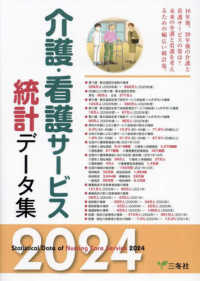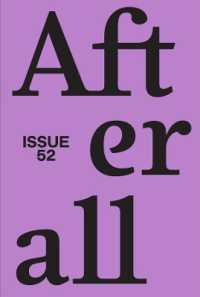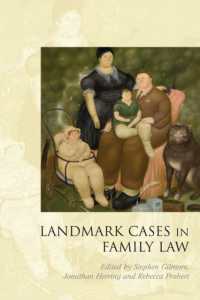基本説明
Offers both a new history of the poetic use of lunulae (the marks of parenthesis) from their first appearance in England in 1494 to the present day, and detailed case-studies of individual poets who exploited lunulae.
Full Description
Dr Johnson disapproved of parentheses and wouldn't use them; and for three centuries grammarians have argued that they are subordinate, additional, unnecessary, irrelevant, and damaging to the clarity of argument. But for Marlowe, Marvell, Swift, Coleridge, Byron, Browning, Eliot, Geoffrey Hill, and Derek Walcott (to name only poets) parentheses have been emphatic, original, necessary, relevant, and essential to the clarity of argument. They also intensify satire. Dr Lennard offers both a new history of the poetic use of lunulae (the marks of parenthesis) from their first appearance in England in 1494 to the present day, and detailed case-studies of individual poets who exploited lunulae. In combination the historical development of use and the individual's practice in a given period reveal the impact on literary composition of technological, philosophical, and political pressures, and the importance for the reader of regarding punctuation as a resource.
Contents
History and terminology; 1494-1640 - translating into print; Marvell etc - genre, religion and modes of reading; 1680-1780 - the dislike of dubiety; a philosophy of moonshine - Coleridge, memory and imagination; 1810-1918 - reassertions of human scale (Burke, Sterne, Cobbett, Byron, Browning, Arnold, Hopkins, Owen); in eliot's penumbra - time and absence; 1942- - the modern range; definitions and theses (methodologies, histories, psychologies)








